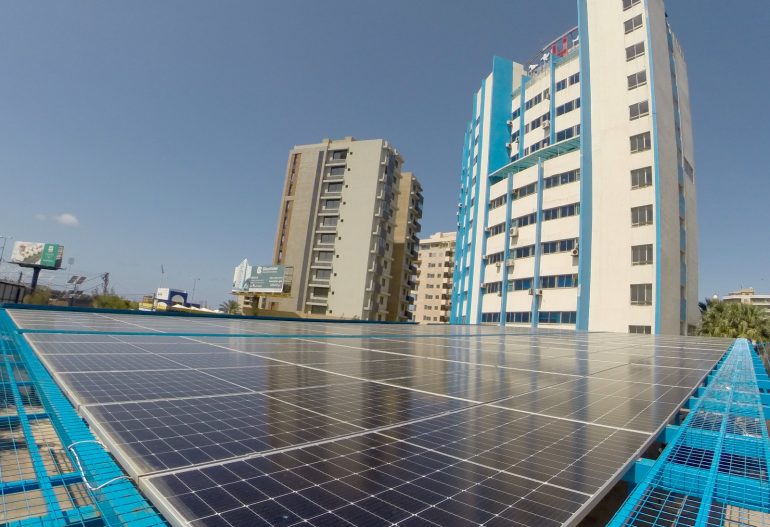It was not easy for Lebanese citizens to adopt with power outage since the impact was affecting the vital and fundamental sectors.
the hospital sector has been considered one of the key sectors adversely impacted since the hospitals and in particular the governmental hospitals were not capable to receive the patients during the current economic crisis especially after the power outage for days or even months.
Several patients were struggling from the electricity crisis. A striking example is the dialysis patients and the chronic disease who were not able to obtain their regular medication.
In light of the crisis, a huge number of the hospitals sector were not able to cope and they forced to be merged, partially or even fully shut down in such situation. Thus the medical sector had no choice but to search for a sustainable solution.
Essential Options
The state officially announced its shortfall to provide the essential services , especially the electricity sector after the cut of oil supplies from several regional countries , add to this , falter the final agreement to draw gas from Egypt and electricity from Jordan , and the difficulty of providing funding to the ministry of energy to buy fuel from the global market , thus installing the solar system represents the ideal sustainable solution for hospital to carry on its essential role by serving the citizens.
The minister of health in the resigned government, Dr. Firas Abiad , has launched ” the strategy of sustainable energy in the healthcare sector in Lebanon” as a permanent solution for the electricity crisis.
Despite the absence of official statistics of the hospitals who adopted this solution, However, nearly 150 primary health care centers in the country have been provided with solar energy, either with the support of organizations and associations or with private funding.
Successful Models
On December 5, it was announced that the bulk of the “Solar Energy for Health” project provided by the United Nations Development Program (UNDP) has been completed, funded by the Government of Germany through the German Development Bank (KfW), which provides support to a number of hospitals. government in various Lebanese regions, where renewable energy solutions will be installed and annual cost cutting will be fulfilled of at least two million and three hundred thousand dollars.
The Rafic Hariri Governmental University Hospital was one of the hospitals that benefited from the solar panel installation project. The installation of these devices, with as estimated capacity of 384 KW , helped run the hospital ‘s work and maintain central sterilization centers.
The Tripoli Governmental Hospital and Dr. Abdullah Al Rassi Governmental Hospital in Halba have also succeeded in moving in this direction, as they were able to install solar energy systems to accommodate patients . In the Tripoli Governmental Hospital, the largest in the north , 835 solar panels have been installed ,producing 450 KW per day . as a result of this project, The hospital currently saves $41,000 from diesel a month, i.e. more than 70% of the cost it incurs, in order to continue providing vital health care to thousands of patients, most of whom are the most economically vulnerable. As for Halba Governmental Hospital, 550 solar panels were installed, producing 300 kilowatts per day, and helped the hospital save $29,000 per month from diesel expenses.
Dual Significance
Solar energy can be a valuable source of free energy for households, community facilities, and municipal buildings. And when a hospital is equipped with solar energy, this renewable source of electricity takes on a higher level of value due to the possibility of helping to save lives, which may be part of the efforts of the United Nations to celebrate World Health Day on the seventh of this April, in order to enhance health care for all Members of the Society.






